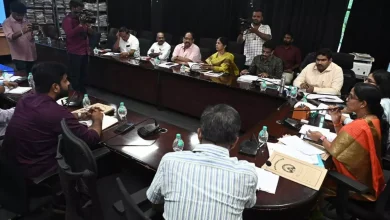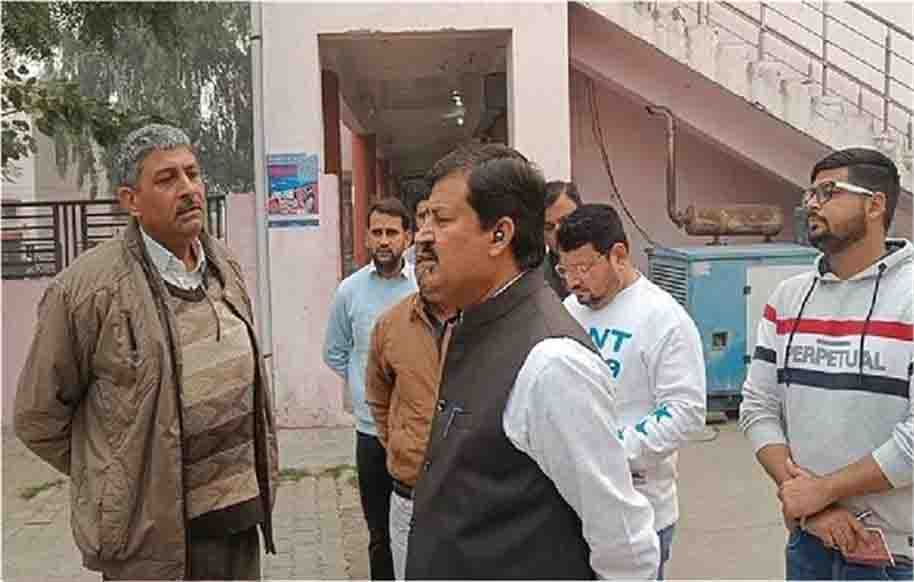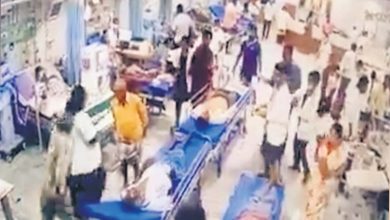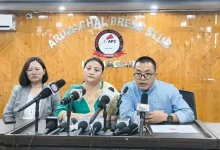BJP wants to hurt Nitish’s Luv-Kush base by calling him weak.

Patna (IANS). Given the BJP’s dismal performance in the southern states of the country, its top leadership is eyeing the Hindi-speaking states of Bihar, Chhattisgarh, Rajasthan and Jharkhand to make some inroads and retain the government at the Centre.
Bihar is important for the saffron party as it has 40 seats and has tough political rivals like RJD’s Lalu Prasad Yadav and JDU’s Nitish Kumar. As a result, Union Home Minister Amit Shah has visited Bihar five times since the formation of the grand alliance government for political rallies.
Bihar BJP President Samrat Chaudhary believes that Lalu Prasad Yadav has a vote bank, but he also knows that Nitish Kumar does not have a vote bank.
Chaudhary said, RJD has its own vote bank but Nitish Kumar does not, hence, NDA candidates will win all 40 Lok Sabha seats and Narendra Modi will become the Prime Minister for the third time.
BJP’s think tank knows that the fight with Lalu Prasad Yadav and Nitish Kumar is not easy. After the 2020 assembly elections, RJD is more or less in the same position as it was in 2015, but Nitish Kumar-led JD(U) is becoming weak. In 2015, JD(U) had 69 MLAs and this dropped to 43 in the 2020 assembly elections.
Politics is all about perception, and BJP knows that Nitish Kumar is strong on the ground and his core voters Luv-Kush (Kurmi-Kushwaha) consider him so. However, if voter perception changes towards Nitish Kumar, there is a possibility that his core voter base, which includes OBCs, may shift towards the BJP.
Therefore, BJP leaders are cleverly targeting Nitish Kumar and creating the impression that he is becoming weak on the ground and the 2020 assembly elections is an example of this.
Since Luv-Kush voters are staunch opponents of the Yadav community, BJP is trying to capitalize on it.
BJP made Samrat Chaudhary its state president to give a message to the Kushwaha community that they have representation in the party.
Upendra Kushwaha’s separation from JD(U) and becoming an alliance partner of BJP is also a ploy to send a message to the voters that Nitish Kumar is becoming weak and supporting him is a waste of their votes.
In the last one year, BJP has taken many JDU leaders to its side. These include RCP Singh, Meena Singh, Upendra Kushwaha, Professor Ranbir Nandan, Monajir Hasan etc. to name a few and efforts are on to harm JDU.
Upendra Kushwaha, who met Amit Shah on Thursday, said, “We met Amit Shah in New Delhi and discussed how to win the Lok Sabha elections in Bihar. At present Nitish Kumar and JDU are not a factor in Bihar. RJD is the biggest factor in Bihar and NDA is making a strategy to deal with it.
He said, “I feel sad for Nitish Kumar. JDU national president Lalan Singh is working for RJD, he is not working in the interest of Nitish Kumar but is thinking about RJD.
In the 2019 Lok Sabha elections, BJP joined hands with JD(U) and the alliance won 39 out of 40 seats. The BJP won 17 seats, JD(U) 16 and Ram Vilas Paswan-led LJP six. Even after the separation of JDU, NDA has 23 seats.
But, the truth is that Nitish Kumar may be looking weak, but he is still in the driver’s seat in Bihar and firmly holds the reins of governance. The government machinery of any state plays an important role during elections, especially in difficult situations when the margin of votes between the winning and losing party is small. During the 2020 Bihar Assembly elections, about 15 NDA MLAs won by a small margin. RJD candidate Shakti Singh Yadav lost the election by a margin of 12 votes.
Four parties are in alliance with BJP for the 2024 Lok Sabha elections in Bihar. These include Chirag Paswan-led LJPR, Pashupati Kumar Paras-led Rashtriya Lok Janshakti Party (RLJP), Upendra Kushwaha’s Rashtriya Lok Janata Dal (RLJD) and Jitan Ram Manjhi-led Hindustani Awam Morcha (Secular) (HAM-S). Are included.
These leaders represent a section of voters from their respective caste and community, but whether this translates into votes is a matter of debate. Moreover, how they sway their voters in favor of BJP is also questionable.
16 percent of voters in Bihar are from Dalit and Mahadalit communities and BJP is eyeing this large share of votes through leaders like Chirag Paswan, Pashupati Kumar Paras and Jitan Ram Manjhi.
When it comes to Chirag Paswan, he is the most influential leader in the BJP basket in Bihar, as he has the political legacy of his late father Ram Vilas Paswan, the great Dalit leader of the country. He represents the Dusadh (Paswan) caste in Bihar, which constitutes six percent of the voters across the state. Apart from this, other Dalit castes also support Chirag Paswan.
















